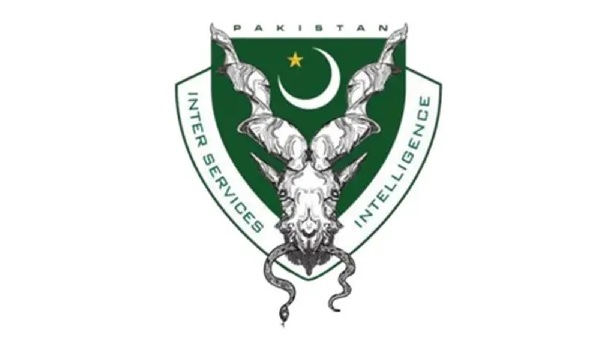ISI , known as the Inter-Services Intelligence, is Pakistan’s premier intelligence agency, instrumental in safeguarding its national security and strategic influence in Asia. Established in 1948, the ISI has been instrumental in intelligence operations both within and outside the country. In this article, we will explore the history, structure, and operational milestones of the ISI that have cemented its role in regional and international security.

Table of Contents
- Origin and evolution of the ISI
- Internal structure and key functions
- Operational milestones and notable missions
- ISI's influence on global security policy
- Final reflection
Origin and evolution of the ISI
The Inter-Services Intelligence was established in 1948, initially as a support department for Pakistan's armed forces. Its creation was partly due to regional tensions with India, especially after the first Indo-Pakistani war in 1947. From the beginning, the ISI was crucial in centralizing intelligence for the three branches of the Pakistani armed forces and coordinating national defense efforts.
Over the decades, the ISI has evolved to suit Pakistan’s geopolitical needs, actively participating in conflicts such as the Soviet-Afghan war in the 1980s. The agency provided logistical and military support to Afghan fighters, becoming a strategic ally for the United States and the CIA in the fight against Soviet expansion. Its ability to operate in conflict regions and in high-risk scenarios allowed it to establish itself as a key player in the international security arena.
Internal structure and key functions
The ISI is organized into several divisions, each with specific intelligence and security functions. This structure allows for a coordinated response to both internal and external threats. Below are some of the ISI's most prominent divisions and their main responsibilities:
Foreign Intelligence
Foreign Intelligence is the branch responsible for foreign operations, and is responsible for collecting information on activities in countries that may pose a risk to Pakistan. This division has a particular focus on neighbouring countries, such as India and Afghanistan, where political and territorial tensions require constant vigilance.
Counterintelligence Division
The Counter Intelligence Division plays a key role in detecting and neutralizing internal threats and foreign espionage. This division is responsible for protecting Pakistan's classified information, especially in the field of defense, and collaborates with other national agencies to prevent infiltrations that may compromise state security.
Special Operations
Special Operations is the tactical component of the ISI, responsible for executing covert missions abroad. This division works closely with Pakistan's armed forces on infiltration missions and gathering sensitive intelligence, especially in conflict zones. Its activities include surveillance and neutralization of threats in collaboration with other allied intelligence agencies.
Operational milestones and notable missions
Throughout its history, the ISI has been responsible for a number of high-impact operations in the area of regional security, many of which have been instrumental in shaping Pakistan's foreign policy. Some of its key milestones are mentioned below:
Soviet-Afghan War
During the Soviet occupation of Afghanistan in the 1980s, the ISI played a key role in supporting mujahideen fighters battling the Soviet army. Funded in part by the CIA, the ISI provided resources and military training to the mujahideen, contributing to the Soviet withdrawal and strengthening Pakistan's influence in the region. This operation consolidated the ISI as a powerful and respected agency in the international arena.
Operations in Kashmir
The ISI has been involved in intelligence and surveillance activities in the Kashmir region, a disputed territory between India and Pakistan. The agency has been instrumental in gathering intelligence and coordinating efforts in the region, with the aim of protecting Pakistani interests and supporting territorial claims in Kashmir. This operation has been one of the most controversial due to the sensitivity of the conflict with India.
Fighting terrorism in border areas
The ISI has worked to neutralize extremist networks in the border areas with Afghanistan, a region that has been a hotbed of terrorist activity. Through counterterrorism operations and a network of informants, the ISI has collaborated with other agencies to dismantle extremist cells and prevent attacks in Pakistan. These operations are critical to maintaining security in the border areas and have contributed to regional stability.
ISI's influence on global security policy
The ISI's influence extends beyond Pakistan's borders, especially in the area of security policy in Asia. The agency's collaboration with other intelligence services, such as the CIA and agencies in Gulf countries, has allowed it to strengthen its position in global security issues. This cooperation has been essential in the fight against terrorism and in preventing conflicts, especially in a region marked by geopolitical tensions.
In addition, the ISI has developed a network of intelligence operations abroad that enables it to obtain critical information to protect Pakistan's interests. Its actions in international conflicts and its ability to conduct espionage missions in strategic regions reinforce its position as a key intelligence agency in the international arena, influencing political and military decisions of global scope.
Final reflection
The ISI is a pivotal agency in safeguarding Pakistan’s interests and the stability of the South Asian region. Its ability to conduct covert operations and focus on intelligence gathering have enabled it to play a crucial role in Pakistan’s foreign policy. With a strong organizational structure and a strategic focus on national defense, the ISI remains a pillar in safeguarding national security.
As the global security landscape continues to change, the ISI’s influence on regional and international security policy will remain significant. Its collaboration with other agencies and focus on threat surveillance are essential for stability in South Asia, cementing the ISI as a relevant player in the global intelligence arena.






 WhatsApp
WhatsApp Telegram
Telegram


